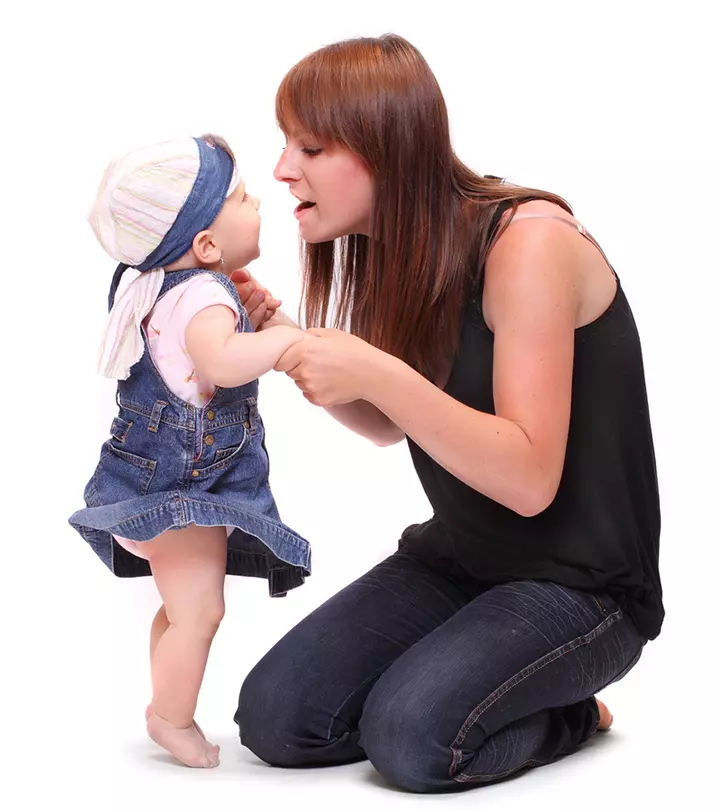

Image: Shutterstock
Parenting can be incredibly rewarding but it can also leave you feeling drained and emotionally worn out if you don’t take care of yourself. And in the race for being the best parents ever, many new parents fall victim to this exhausting feeling. And many parents suffer parental compassion fatigue or caregiving burnout which they might be unaware of.
To help you understand this better we’ll discuss everything revolving around the ignorance towards parental fatigue to help you maintain a healthy state of mind while raising your little ones.
What Is Parental Compassion Fatigue?
Image: Shutterstock
Parental compassion fatigue is a phenomenon that can affect any parent, but it is especially common among parents of children with special needs or when you go through situations like full lockdown due to a virus outbreak. It occurs when the stress and emotional strain of caring for a child takes its toll on the parent’s mental health and well-being. This can lead to feelings of exhaustion, frustration, guilt, anger, and even depression.
Symptoms Of Parental Compassion Fatigue
Image: Shutterstock
While it may be difficult to recognize at first, there are several symptoms associated with parental compassion fatigue that can help identify if you are suffering from this condition.
- The most common symptom of parental compassion fatigue is physical exhaustion. This includes feeling tired all the time even after getting adequate rest or sleep.
- Feeling overwhelmed by your responsibilities as a parent. For example, a parent who used to love going for walks with their child may now feel too exhausted to leave the house.
- Having difficulty concentrating on tasks, and generally lacking energy throughout the day.
- Increased irritability towards your child’s behavior or situation. You may experience mood swings or feel like you’re on an emotional rollercoaster. For example, a parent may snap at their child for asking a simple question or burst into tears over a minor inconvenience.
- Lack of motivation in taking care of yourself such as eating healthy meals, exercising regularly, etc.
- Withdrawal from family activities or social engagements due to overwhelming feelings related to parenting duties.
- Lack of empathy for your kids. You may feel like you’re just going through the motions of caregiving without truly feeling engaged or invested in your child’s well-being. For example, a parent may find it hard to sympathize with their child’s disappointment over a lost toy or struggle to feel happy about their child’s achievements.
- Depression-like symptoms such as sadness/hopelessness for no particular reason etc and other physical illnesses like headaches, muscle aches, and digestive issues can bother you from time to time.
Causes Of Parental Compassion Fatigue
Image: Shutterstock
There are several causes of parental compassion fatigue, here are a few of them mentioned below:
- Lack Of Support From Family Or Friends
Parents who lack support from family, friends, or the community can feel overwhelmed and isolated. For example, a parent who has recently moved to a new city and has no family or friends nearby may feel unsupported and stressed.
- Unrealistic Expectations
Having unrealistic expectations about parenting children with special needs or challenging behavior. For example, a new parent who struggles with breastfeeding or sleep training may feel guilty and inadequate, leading to emotional exhaustion and burnout.
- Dealing With Difficult Emotions
Emotions such as guilt, fear, anger, frustration, etc., and financial strain due to medical bills associated with caring for these types of children.
How To Cope Parental Compassion Fatigue?
Image: Shutterstock
The following are some tips for coping with parental compassion fatigue:
- Take time for yourself, away from your parenting duties. This could be something as simple as taking a walk or going out in nature for some fresh air and exercise, anything that gives you time away from your children and allows you to relax.
- Taking regular breaks will help reduce stress levels and give your mind the break it needs from all the demands placed on parents these days.
- Reach out when needed, don’t feel like you need to handle everything alone! Whether it’s talking things through with friends or family members who have been through similar experiences or seeking professional help if needed, there is no shame in asking for support when times get tough! Talking about how you’re feeling helps you process your emotions more effectively.
- Allowing yourselves space each day where you focus solely on yourselves helps keep your mental health balanced even during difficult times such as those brought about by parental compassion fatigue. Self-care also provides you with much-needed energy reserves which come in handy during especially trying moments!
Overall parental compassion fatigue isn’t something anyone should ever feel ashamed about since we all need breaks now and then! Taking care of yourselves through proper self-care & reaching out to others who are willing to lend a helping hand goes a long way ensuring you can stay healthy while raising your family’s happy and well-adjusted kids! Do let us know in the comment section below how’d you find about this fatigue and ways you used to cope with it to help other fellow parents as well. Happy parenting!
Parental Compassion Fatigue: Top Coping Strategies
Watch our video to learn how to spot parental compassion fatigue early and reclaim your well-being. Discover key causes, symptoms, and self-care strategies. Watch now for practical tips!
Community Experiences
Join the conversation and become a part of our nurturing community! Share your stories, experiences, and insights to connect with fellow parents.

















